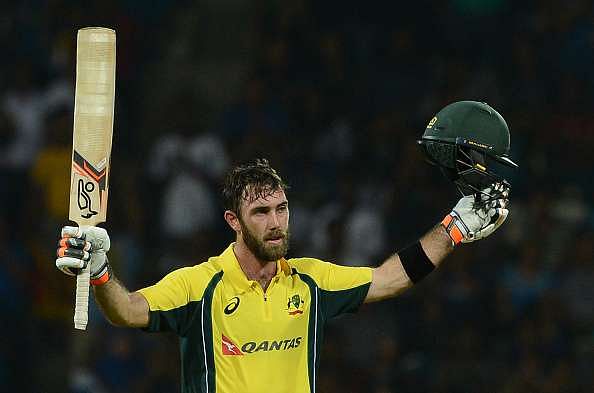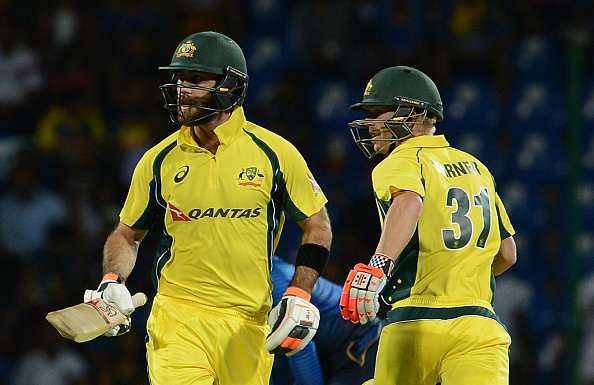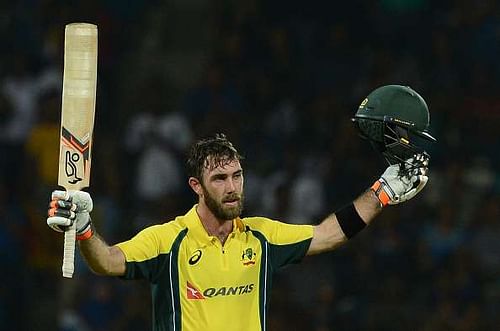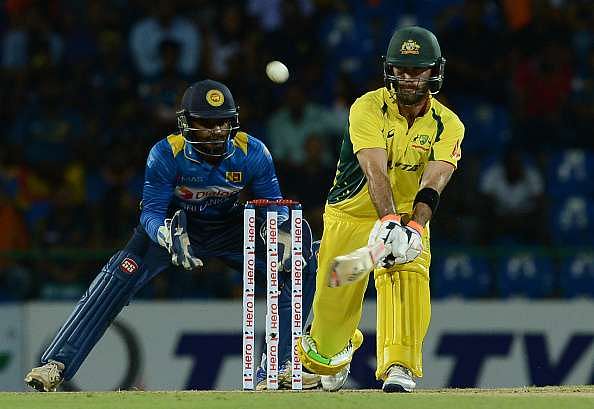
SK Player of the day: Glenn Maxwell's maiden T20I hundred on his international comeback
Glenn Maxwell, for one, isn’t the one too obsessed with cricket records, but he is surely the one who believes that other cricketers are. Indians would know that better than anyone else. The thing is, however, that you need to be in the team to make those records or break them; something that Maxwell was made aware of quite recently.
“Glenn has too many games where he doesn't contribute with the bat. He is averaging less than 10 runs in Australia's last 10 one-day internationals so the numbers speak for themselves,” the chairman of selectors, Cricket Australia, Rod Marsh, had said after the 27-year-old was sacked from the ODI side for the tour of Sri Lanka.
“As far as I am concerned, he has had a lot of chances. It got to that stage - we couldn't go on any longer. He is a hell of a good fieldsman, as we know, he is a handy bowler, and, at his best, he is one of our first picked in a one-day team. But if he is not making runs, then we have got to find a solution to it,” Marsh had added.
Maxwell was pensive when the news was broken to him. The Australian ODI Player of the Year had calculated words to say after he was unceremoniously shown the door. “Obviously, I'm disappointed to miss out on the squad but I've had some good chats to (selectors) Rod (Marsh) and Trevor (Hohns). I got some really honest feedback which was good to hear but there are also things I need to work on.”
But his retort was also equally quick. “I don't think the selectors want to see me hit sixes – they know I can do that – so it's about accumulating totals and not just doing the flashy stuff,” the right-handed batsman had said.

The comeback ceremony after the unceremonious ouster
Hence, when he was picked for the two T20I against Sri Lanka, the ‘big show’ had a massive show to put up, lest to be ousted from the sole squad he still featured in. There is a thing about Maxwell when it comes to proving himself right. Maybe it isn’t particularly associated with him alone; maybe it is a generic Australian character.
Aaron Finch was ruled out of the T20s after a finger injury and David Warner needed an opening partner. Usman Khawaja had opened for Australia before, while Matthew Wade had done it in the ODI series. However, Australia, it seemed, chose to take a leaf out of India’s book – the country that is ‘oh-so-obsessed’ with the records – and decided to promote Maxwell to the top, much like India had done with Rohit Sharma back in 2013.
Maxwell had practically no runs behind him, was playing international cricket after a gap of two months, and had all the eyes fixed on him. As opposed to what is perceived generally, maybe this was something all the Australians have always looked forward to.
Just 3 runs were scored off the first over, that saw the Lankan fielders throwing themselves around inside the circle, and saving valuable runs, completely unaware of the butchery was going to ensue. As it turned out, it was the least expensive over of the innings and one of the only three overs in which less than 10 runs were scored.
Contrary to what happened as the innings concluded, it was Warner who drew first blood, by taking Kasun Rajitha – who was playing his first T20I in Sri Lanka – for four consecutive fours in the second over. Maxwell burst onto the scenes in his own characteristic style – with a reverse sweep for six over point off Sachithra Senanayake – and for a moment it seemed as if nothing had changed.
The finesse with which he pulled it out, after failing to do the same on the first ball that he had faced in the innings, made one believe that he had been practicing that one particular shot only in the nets. What it also forced one to believe was that he could still be the inconsistent cameo guy that he had made a name for himself as. However, for tonight, if one just takes one game at a time, Maxwell was different.
The ‘big show’ going really big
He reversed seam-up balls, low full-tosses, full deliveries and half-trackers with the minimum of fuss. And he reversed them cleanly. It was the old Maxwell for sure, but with a newer sense of purpose. The conventional sweeps were still there, and hoicks across the line over long on were still there, and so were the inside-out slashes over covers.
The six off Senanayake was followed by a four, and although Warner was bestowed with the choicest of expletives by the Lankan spinner upon the former’s departure from the crease in the same over, Maxwell was there to stay. Australia had already crossed fifty in the 5th over. Thisara Perera was taken for three fours in his first over, Rajitha, returning after a 19-run first over, was smashed for two more sixes, and by the time Senanayake came back for his second over and completed it, Australia had crossed the 100-run mark in the 10th over.
Maxwell had brought up his fifty off just 27 balls, and the time was right for him to leave, no? No, it wasn’t. The ‘big show’ had prepared to go big.
Sri Lanka switched to Sachith Pathirana, one of the several wrist spinners being experimented with during the tour. But it was already too late. When a batsman gets his eye in, especially in a T20 game, it becomes only a matter of chance whether you can get him out from there. Sri Lanka, although, had no chances.
Pathirana was hit for four fours and a six in his first two overs, and although he carved out the wicket of Khawaja, Australia had already crossed 150 in the 14th over itself. The score was 166/2 in 14 overs with Maxwell batting on 87. A number of records were there for the taking. The highest team total in T20I hung in the balance, and so did the highest individual score in the format.
Two fours off Perera in the 15th took him to 98 and a couple off a no-ball (oh, the irony) took him to the milestone. But Maxwell isn’t a man of milestones, is he? Two fours and two sixes later – all of them being hit by the comeback man – the highest T20 score against Sri Lanka was raised, and so was Australia’s 200. Senanayake was made to pay heavily for his send-off to Warner, with a 22-run over in the 17th.
Two more overs later, after the 19th, there were 247 runs on the board, just 13 less than the all-time highest T20I total – made by Sri Lanka (260/6) against Kenya in the World T20, 2007 – and Maxwell was batting on 144, just 12 runs away from his countryman Aaron Finch’s all-time highest T20I individual score of 156, that he made against England in Southampton last year.
But, as I have already mentioned a countless number of times, Maxwell didn’t care for records. Travis Head, who was in a morale-breaking mood of his own, farmed the strike in that over, hit two fours and a six to take Australia to the record T20I team score of 263/3, and got caught off the last ball.
Maxwell returned unbeaten on 145, and he did not, or should I say, could not, play for the records.

